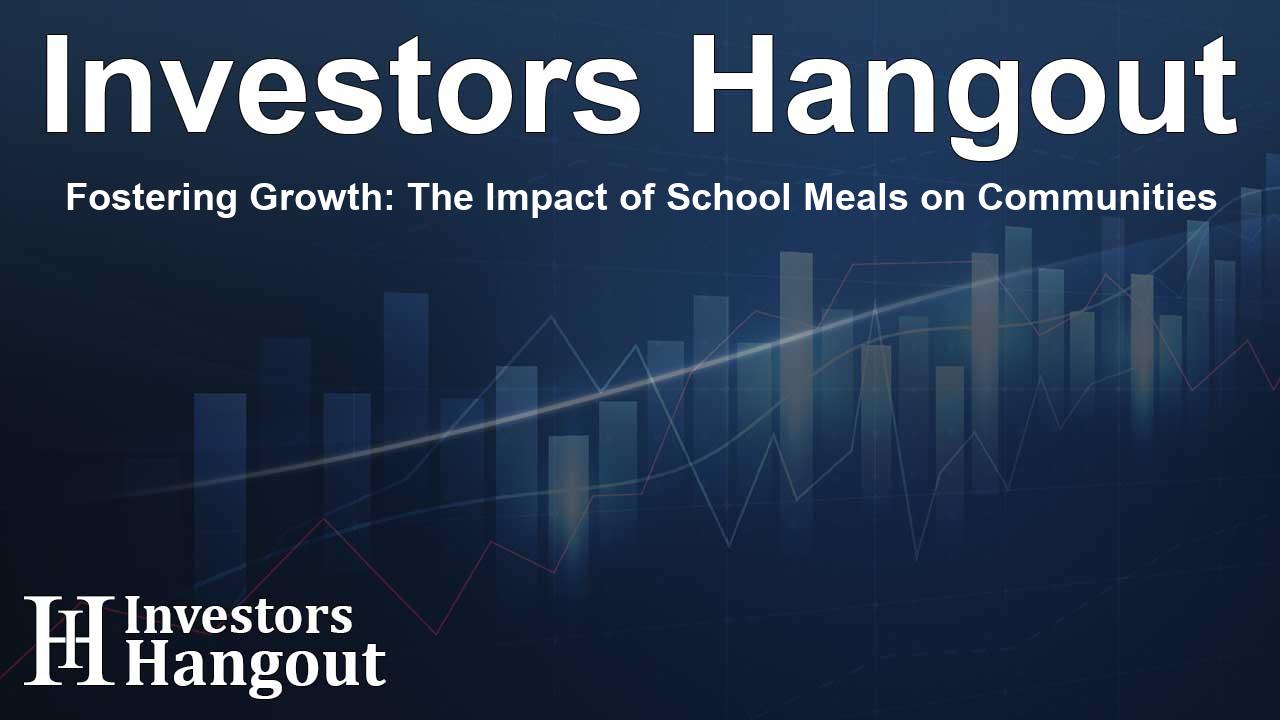Fostering Growth: The Impact of School Meals on Communities

Understanding the Importance of School Meals
On World Food Day, Education Cannot Wait emphasizes the growing necessity for investments in school feeding programs across the globe. These programs play a critical role in combating hunger and ensuring children can access the nourishment they need for education.
The Stark Reality of Food Insecurity
Currently, millions of people suffer from hunger, with a significant number of children grappling with severe malnutrition. Education Cannot Wait highlights that amidst these daunting figures, school feeding initiatives provide a vital avenue to address the complex issues surrounding food insecurity.
Tackling Multiple Challenges
School feeding programs don't just provide meals; they serve as a lifeline for numerous children caught in the web of poverty, conflict, and climate change. By incorporating feeding initiatives into educational frameworks, we can effectively tackle these intertwined challenges while ensuring that children remain healthy and focused on their studies.
Current Escalation and Achievements
The global progress in school feeding is uneven, with many regions under significant stress from both natural and man-made crises. Educational institutions are stepping up, and reports reveal that the number of children receiving school meals has risen significantly in recent years, showcasing national investments in such programs. However, countries facing turmoil often lack the resources necessary to provide these essential meals.
The Role of Multilateral Funds
Educational initiatives like Education Cannot Wait are crucial in this landscape, as they offer the necessary support to schools that need help. Funding from such organizations enables healthy meals to reach children in conflict-affected areas, providing not just food but hope for a better future.
Community Impact of School Feeding Initiatives
From 2023 to 2024, the collaboration of Education Cannot Wait and its partners has made significant strides by establishing feeding programs that serve around 385,000 children. This initiative doesn’t only benefit the children receiving meals; entire communities thrive as local economies are strengthened.
Sustainable Local Benefits
In regions like Cameroon and Haiti, funds directed by Education Cannot Wait are being utilized to purchase food from local farmers, ensuring that the community supports itself while nourishing its children. These programs enhance local economies, creating a resilient food system that can withstand future challenges.
The Call to Action on World Food Day
Every year, World Food Day provides a platform to urge for increased investments aimed at school feeding programs for those affected by crises. The need has never been more pressing, as millions of children are stuck in the cycle of impoverishment and displacement.
Investing for the Future
By investing in school feeding programs, we are not just feeding hungry children; we are also promoting mental well-being and laying down the foundation for sustainable economic development. Every meal is a step towards breaking the vicious cycles of poverty and ensuring brighter futures for the next generation.
Frequently Asked Questions
What is the primary focus of Education Cannot Wait?
Education Cannot Wait aims to provide educational opportunities to children in crisis situations, focusing on school feeding programs to ensure they receive essential nutrition.
How do school feeding programs benefit communities?
These programs enhance children's health and education while also boosting local economies by sourcing food from local farmers and providing jobs.
Why is World Food Day significant for school feeding initiatives?
World Food Day serves as a reminder and call to action to increase funding and support for school feeding programs to address child hunger globally.
How many children are currently receiving school meals?
According to recent reports, approximately 466 million children are benefiting from school meal programs worldwide.
What challenges do school feeding programs face?
Programs often contend with funding shortages in areas affected by conflict, climate change, and economic instability, making it difficult to provide consistent meals.
About The Author
Contact Thomas Cooper privately here. Or send an email with ATTN: Thomas Cooper as the subject to contact@investorshangout.com.
About Investors Hangout
Investors Hangout is a leading online stock forum for financial discussion and learning, offering a wide range of free tools and resources. It draws in traders of all levels, who exchange market knowledge, investigate trading tactics, and keep an eye on industry developments in real time. Featuring financial articles, stock message boards, quotes, charts, company profiles, and live news updates. Through cooperative learning and a wealth of informational resources, it helps users from novices creating their first portfolios to experts honing their techniques. Join Investors Hangout today: https://investorshangout.com/
The content of this article is based on factual, publicly available information and does not represent legal, financial, or investment advice. Investors Hangout does not offer financial advice, and the author is not a licensed financial advisor. Consult a qualified advisor before making any financial or investment decisions based on this article. This article should not be considered advice to purchase, sell, or hold any securities or other investments. If any of the material provided here is inaccurate, please contact us for corrections.
